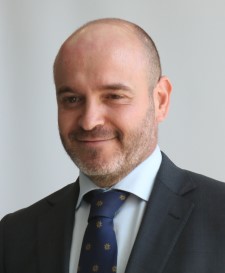Meet the 2023 ACA second place winner: Córdoba

date: 06/09/2023
What do you believe made your city stand out to win the Access City Award?
I believe that in Córdoba we have fully understood the concept of ‘Universal Accessibility’. We know that accessibility is not limited to a wheelchair, but that there are different user profiles, different challenges, and many ways to offer solutions.
What are your city’s long-term objectives in the field of accessibility?
We are aware that there are still many things to continue working on in Córdoba. We have identified the parts of the city that need more effort and we are working on improving them.
In the long term, we are committed to personal autonomy. The aim is for any person, with or without disabilities, to be able to move around Córdoba in complete freedom, without depending on anyone. Working with the private sector is key to this, and we continue to explore new opportunities for collaboration with companies such as NaviLens. In Córdoba, NaviLens codes help visually impaired users to independently use the city’s public transport network.
How did winning the Access City Award impact Córdoba?
We have seen a great impact since we won the Access City Award. We have been approached by other city councils in Spain and in other countries. We have set an example and they have invited us to give presentations on accessibility. Within the city administration, winning this award was also very positive, because it helped us reinforce our position that we must continue investing in accessibility.
Why do you believe accessibility should be a priority for any city?
Because it is necessary, and because we are generally late to the topic. A change of attitude is needed at all levels, and we as a public administration must set an example.
Moreover, accessibility does not always require large investments. For example, an adapted public bathroom is not expensive and allows a person with a disability to enjoy their outside environment without any kind of limitation. Our motivation is always to improve the quality of life for everyone.
Do you have any advice for other cities looking to become accessible?
Any ideas you have should always be consulted with the relevant stakeholders. We validate our initiatives with them because they are the ones that understand the challenges on the ground the best. Another tip would be to always be aware of the latest developments in accessibility and to keep an eye on what works well in other places so that it can be replicated.
